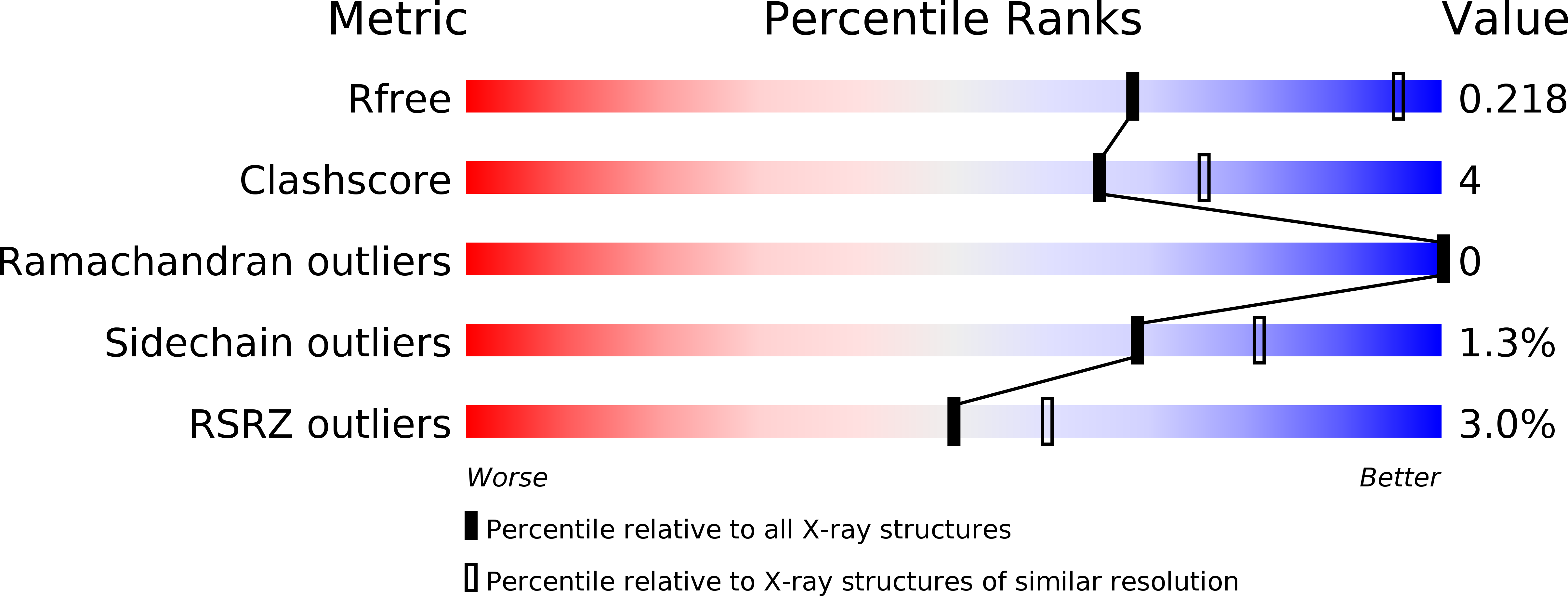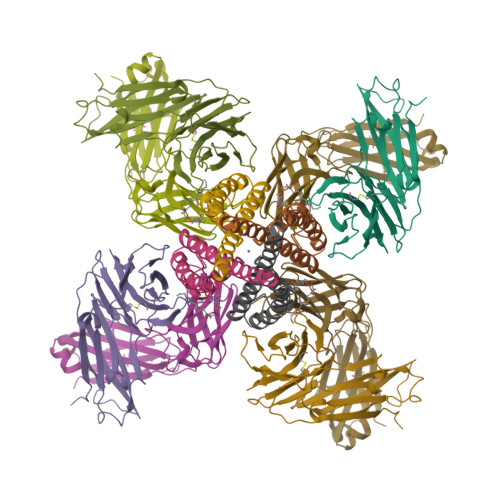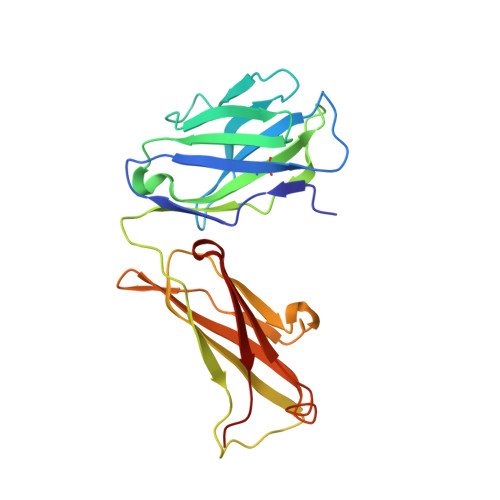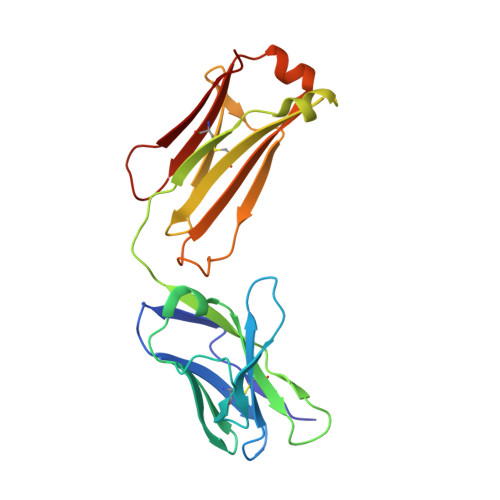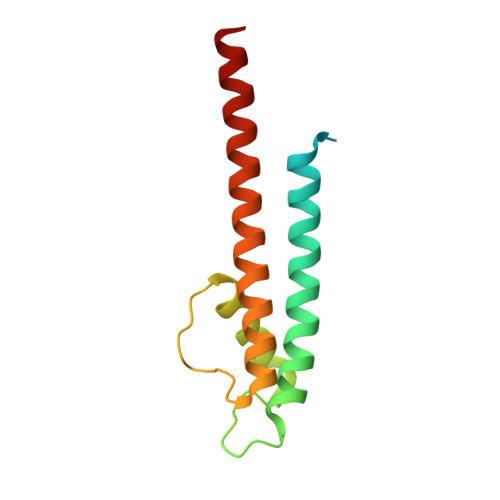Molecular interactions involved in proton-dependent gating in KcsA potassium channels.
Posson, D.J., Thompson, A.N., McCoy, J.G., Nimigean, C.M.(2013) J Gen Physiol 142: 613-624
- PubMed: 24218397
- DOI: https://doi.org/10.1085/jgp.201311057
- Primary Citation of Related Structures:
4LBE, 4LCU - PubMed Abstract:
The bacterial potassium channel KcsA is gated open by the binding of protons to amino acids on the intracellular side of the channel. We have identified, via channel mutagenesis and x-ray crystallography, two pH-sensing amino acids and a set of nearby residues involved in molecular interactions that influence gating. We found that the minimal mutation of one histidine (H25) and one glutamate (E118) near the cytoplasmic gate completely abolished pH-dependent gating. Mutation of nearby residues either alone or in pairs altered the channel's response to pH. In addition, mutations of certain pairs of residues dramatically increased the energy barriers between the closed and open states. We proposed a Monod-Wyman-Changeux model for proton binding and pH-dependent gating in KcsA, where H25 is a "strong" sensor displaying a large shift in pKa between closed and open states, and E118 is a "weak" pH sensor. Modifying model parameters that are involved in either the intrinsic gating equilibrium or the pKa values of the pH-sensing residues was sufficient to capture the effects of all mutations.
Organizational Affiliation:
Department of Anesthesiology, 2 Department of Physiology and Biophysics, and 3 Department of Biochemistry, Weill Cornell Medical College, New York, NY 10065.







